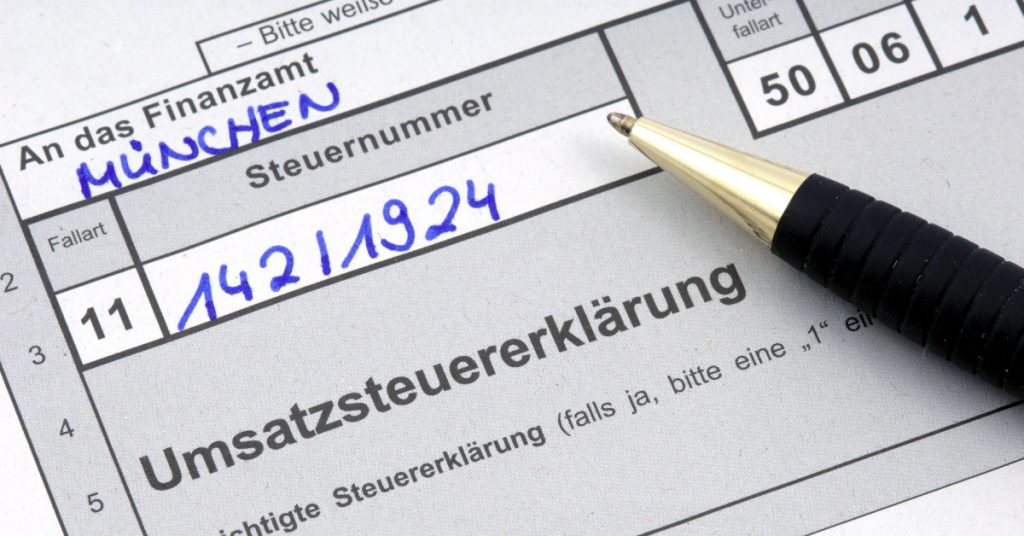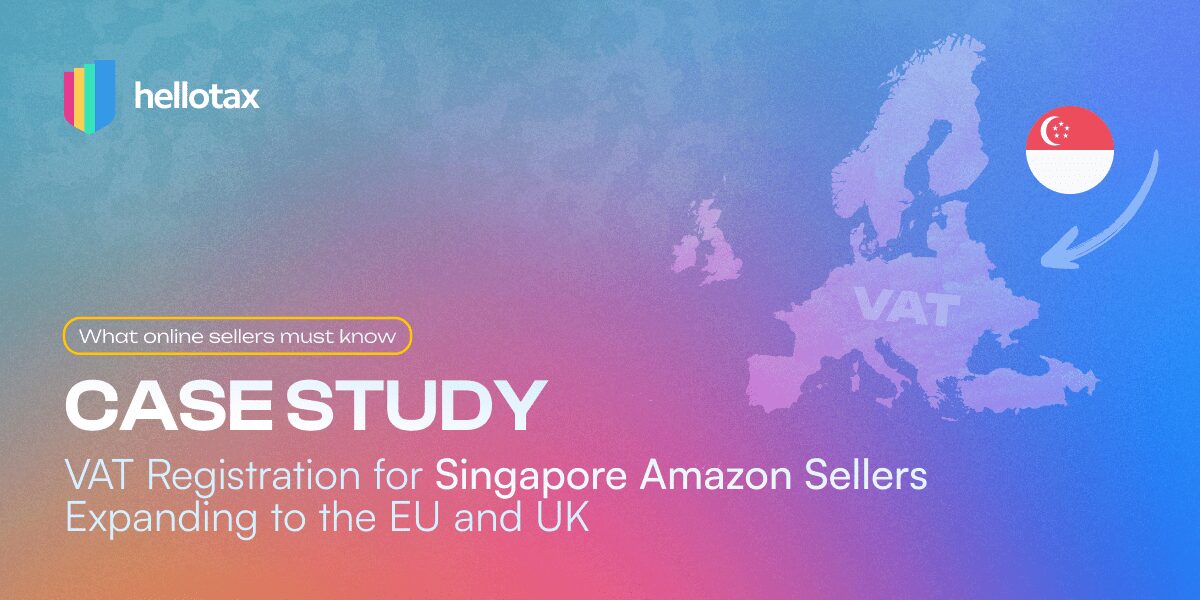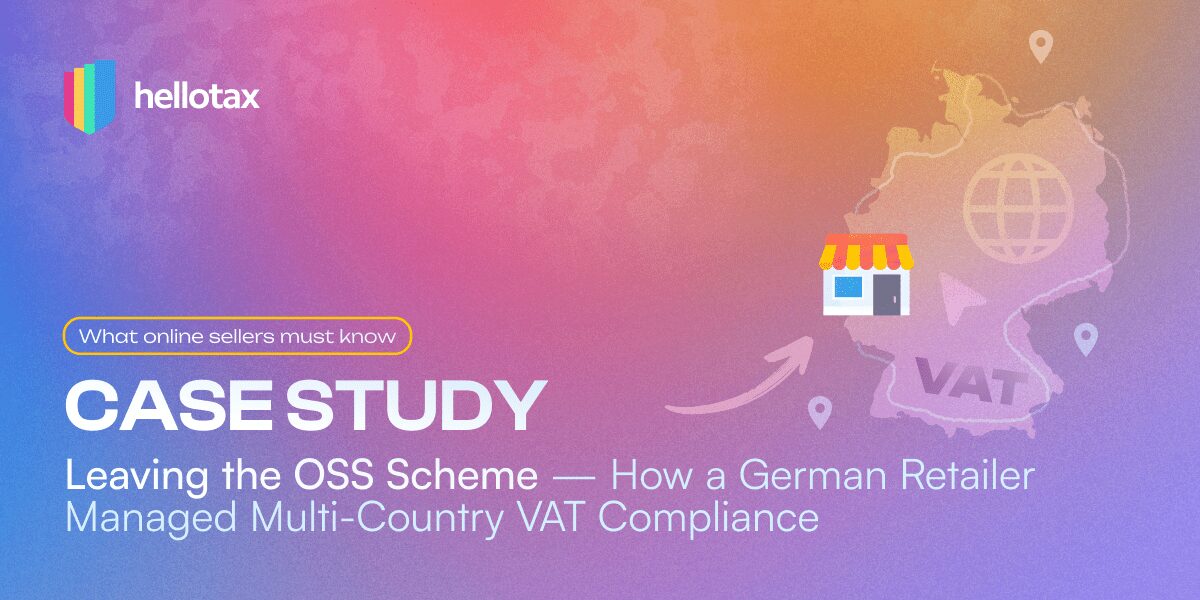From a company’s point of view, VAT is a transitory item: companies report the tax, collect it and pass the VAT on to the tax office. This may sound uncomplicated, but the process involves some ambiguities that can ultimately lead to a tax trap. In the following article we describe the important aspects to help you avoid VAT risks and we point out where it is worthwhile to consult a VAT accountant.
Antonia Klatt
Last Updated on 13 September 2020
What is VAT?
The value added tax (VAT) is shown on almost all invoices and it is a consumption tax added to the value of almost all products/service sold in Europe.
VAT is levied on all sales of a company – both partnerships and legal entities – provided that the legal requirements for taxable sales are met. The principle of VAT is easy to understand: the company providing the service is subject to VAT on all its turnover – both partnerships and legal entities – provided that the legal requirements for taxable turnover are met. This is because the end consumer pays the VAT, which in turn is passed on to the tax office. However, it should be noted that the full amount of VAT collected does not necessarily have to be passed on to the tax authorities.
If the company is entitled to deduct input tax, the company can reduce its VAT payable. For example, the company is entitled to deduct the VAT paid on the consumption of products or services provided to other companies. The company claims the VAT paid as input tax at its responsible tax office and thereby receives a monetary advantage.
When should you contact a (Amazon) VAT Accountant?
You are unsure whether your company is entitled to deduct input tax? If so, it is advisable to consult a tax consultant for VAT law.
But why is this advisable? Quite simply: If you unjustifiably charge the VAT paid and thereby minimize the total tax burden of your company, you are violating applicable tax law. As a result, you could face existentially threatening repayments demanded by the tax office and even interest in the worst case.
Payment of VAT as a small business owner
However, the tax law system provides for exemptions for small businesses and companies in the VAT regime. Companies are classified as so-called small businesses if they did not exceed a certain turnover. In the case of Germany for example, the turnover limit is 17,500 EUR in the previous year and an expected turnover of maximum 50,000 EUR in the current year.
If companies meet these sales-related conditions, there is no obligation to pay VAT. In this respect, those companies are not obliged to show the VAT on their invoices. At the same time, such companies are also denied the right to claim the VAT paid from the tax office. This means that in this constellation the company is charged with the VAT for external services and cannot reclaim the VAT paid from the tax office.
Disclaimer for small businesses
For these reasons, companies that are classified as small businesses under the VAT Act may actively opt out of the small business scheme.
This gives them the right to claim input tax from the tax office. With the renouncement explanation lurks however some small stumbling blocks, which cause small to larger hurdles in the further business process: For example, those companies are bound to the disclaimer for at least 5 years. As a result, companies cannot switch back and forth between taking advantage of the small business regulation and waiving it. In addition, tax law requirements for invoicing arise.
Advantages of the voluntary VAT obligation
It can be stated that the voluntary VAT liability offers you advantages in business life. After all, you are entitled to deduct input tax. However, the associated administrative tasks, such as the regular submission of advance VAT returns, can take up a lot of time in economically difficult years. For reasons of efficiency, you may intend to make use of the small business regulation again.
But be careful: switching back and forth is not that easy. Here it may be advisable to go through the different scenarios with a tax law expert and identify the business construct that suits you best.
Freelance work versus commercial activity
According to the law, freelance work differs from commercial activity, which is why different tax law conditions apply to such professional groups. For example, freelancers are excluded from trade tax – in contrast to tradespeople – and are therefore not subject to trade tax. However, caution is advised here: The exclusion from trade tax liability does not imply the exclusion from VAT liability.
On the contrary: freelancers are generally subject to VAT. In this respect, freelancers are also obliged to submit a VAT return to the tax office at regular intervals. In addition, freelancers are obliged to submit a monthly VAT advance return within the first two years. If, after two years of freelance activity, the VAT is below the annual limit of EUR 1,000, the tax office may refrain from filing a monthly VAT advance return.
Freelance professional groups that are not subject to VAT
Basically, freelancers have to comply with similar tax law obligations as, for example, classical companies. However, there are also freelance professional groups that are not subject to VAT by tax law. This means that they do not show VAT on their invoices and are therefore not entitled to deduct input tax. Such freelancers can often be found in the medical, cultural and educational sectors.
VAT Accountant for sales tax
As described so far, there are different dangers in the VAT law. For example, subtleties have to be taken into account in the waiver of the small business regulation and the resulting requirements under VAT law. Furthermore, all companies subject to turnover tax are obliged to submit their turnover tax advance return on a monthly basis initially. In the course of time, however, the submission deadlines may change. This depends on the respective tax law situation of a company. In addition, freelancers are only liable for VAT in individual cases.
Assessment by VAT Experts
All these special constellations and peculiarities cannot be generalized and require an assessment of the respective tax law framework in which a company finds itself. Ideally by a VAT consultant. This is essential, not least because of the diverse and regular jurisdictions and legislation an the local regulations in all EU countries. In addition, the consultation of a tax advisor specializing in VAT law is recommended to minimize the financial risks.
Due to the increasing number of regular changes regarding the formal submission and its deadlines, there may be some confusion. However, the tax office is not very squeamish when deadlines are missed or formal guidelines are not followed. In the worst case, high interest rates on the tax burden or even special VAT audits or similar tax law procedures may result. The missed VAT payments to the tax office can be classified as a misdemeanor that can threaten the company’s very existence. If companies do not comply with the applicable regulations and obligations of the VAT Act, the tax office may demand additional VAT payments, the amount of which may threaten the continued existence of the company.
If you want a quick free consultation you can use this online chat service
VAT Accountants from hellotax
The professional Amazon VAT accountants from hellotax offer you competent support with questions regarding VAT law – no only in the universe of Amazon but in general. We conscientiously take care of your tax law concerns and work out a tax-compliant framework for your company together with you. In this way, you are always on the safe side from a tax perspective and do not have to worry about repayment claims that threaten your existence.
In addition, our tax accountants are entrusted with both international and national tax frameworks. So we can also handle your international tax law issues without any problems and basically all you tax concerns.

Book a free consultation
Our VAT experts are happy to help you. Book a free consultation today!
Summary
The rules and regulations for the value added tax in Europe are diverse and entail financial risks for entrepreneurs. It is therefore all the more important to consult a tax accountant with knowledge in VAT law as early as possible to pave the way for a tax-compliant path for the company.
With the help of VAT accountants, you can evaluate the extent to which your company is subject to VAT and which tax law requirements arise from this and make sure you always stay VAT compliant.


